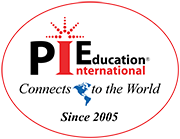La Trobe University - Melbourne
Plenty Road, and Kingbury Drive, Bundoora, Victoria, Australia
Program Summary
Due to the global effects of population growth and the COVID-19 pandemic, the number of people living with chronic conditions is on the rise. As a result, the demand for nurses in all specialised fields is expected to rapidly increase.
La Trobe's Master of Nursing lets students match their study to their career aspirations. They can enhance their knowledge and skills in specialist areas by choosing from a range of clinical and non-clinical subjects. If students are registered nurses working in Australia, they'll have access to a wide variety of specialisations. They can enjoy a flexible, blended learning approach that combines face-to-face workshops with online study that they can fit around their work commitments and access from anywhere. For a clinical specialisation students will also undertake advanced clinical training in their own hospital's relevant work setting.
If students are looking to pursue a career as nursing educator, academic or manager, they'll have access to the online non-clinical specialisations. They will develop advanced knowledge of nursing research along with the critical thinking, problem-solving and communication skills they need to thrive as a nursing researcher, educator or leader.
Students will graduate ready to effectively plan, implement and evaluate practice in your specialised context, make high-level independent judgements, and function effectively as a member of a multidisciplinary team.
The clinical specialisations include:
Acute care
Learn how to recognise, respond to, and manage patients with acute conditions and evaluate care delivery to improve patient outcomes.
Cardiac care
Gain the skills to care for cardiac patients, while exploring topics like electrocardiography, acute respiratory failure, and the assessment and management of arrhythmia and acute coronary syndromes.
Critical care
Examine nursing requirements for critically ill patients across a range of clinical settings and understand how to anticipate and respond to changes in your patient's condition.
Emergency care
Learn how to develop a plan of care for emergency patients, employ appropriate nursing interventions based on identified clinical priorities, and evaluate patients' response to treatment.
Intensive care
Discover how to care for patients with life-threatening conditions, observe and assess their physical and mental functions, and carry out specific medical treatments.
Medical imaging
Understand patient care in the context of medical imaging and explore the procedural considerations regarding imaging modalities, airway management, conscious sedation, and potential complications encountered with medical imaging.
Neonatal care
Gain the skills and knowledge to care for low- and high-risk neonates and their families in settings such as neonatal intensive care units.
Neonatal special care
Learn how to care for patients in neonatal special care. Understand how to conduct comprehensive assessments in time-critical environments and develop appropriate nursing care plans for complex scenarios.
Perioperative practices
Develop the skills and knowledge to ensure a safe surgical and anaesthetic experience for patients in pre-operative, intraoperative and post-operative environments.
The non-clinical specialisations include:
Public health
Understand the complexity of health care systems around the world and consider the connection between health and politics, economics and social structures.
Leadership
Develop your leadership skills and prepare to take on roles across both clinical and management positions. Develop your abilities as a facilitator, teacher, mentor and clinical supervisor.
Health administration
Understand the role of epidemiology and biostatistics in public health and explore the function of human resource management. Understand contemporary approaches to quality and safety in health care and evaluate the success of different health service organisations.
Academic Background
Minimum Level of Education Completed
3-Year Bachelor's Degree
Minimum GPA
50%
Minimum Language Test Scores
TOEFL
79
IELTS
6.5
Reading
6
Writing
6
Listening
6
Speaking
6
PTE
56
Reading
46
Writing
46
Listening
46
Speaking
46
Program Intakes
July 2025
Open date
July 16, 2024
Submission deadline
June 16, 2025
November 2025
Open date
March 1, 2025
Submission deadline
September 1, 2025
February 2026
Open date
October 31, 2025
Submission deadline
December 3, 2025
March 2026
Open date
August 8, 2025
Submission deadline
January 20, 2026
Cost and Duration
Master's Degree
Program Level
2 year master's degree including work placement
Program Length
$29710 AUD
Cost of Living
$0 AUD
Application fee
$35000 AUD / First Year
Gross Tuition
Other Fees
Overseas Student Health Cover (OSHC) Fee: $597 per year
Study Destinations
© 2005-2025 PIE Academy Inc.


